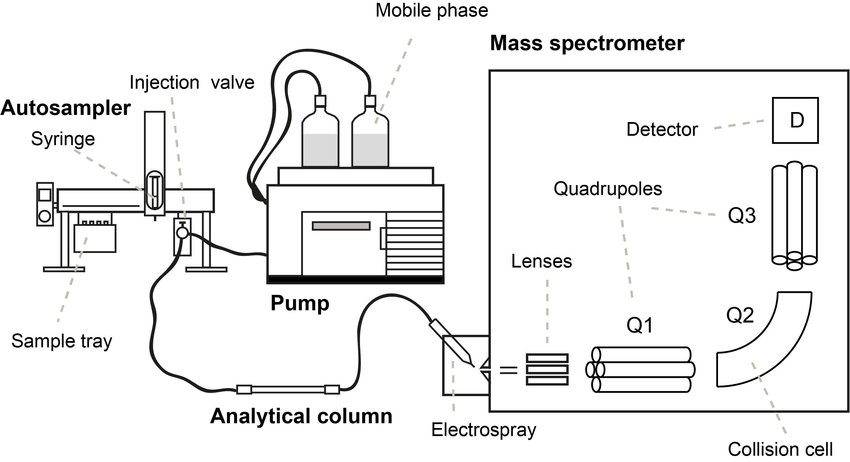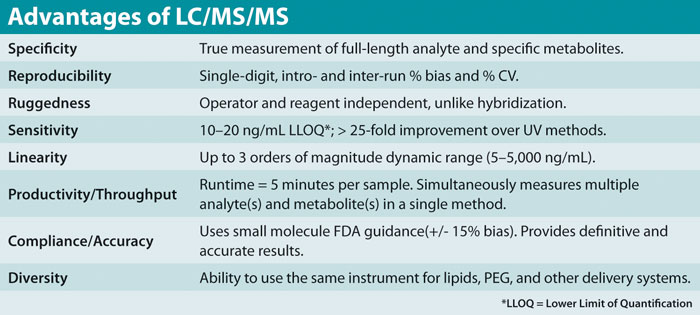Introduction
Neurotransmitters are chemicals in the brain that act as messengers between nerve cells. They play a critical role in many functions, including thinking, emotion, movement, and behavior. Abnormal levels of neurotransmitters are associated with various neurological and psychiatric disorders. For many years, scientists have used various methods to measure neurotransmitter levels in the brain. However, these techniques often had limitations. LC MS-MS, or Liquid Chromatography-Tandem Mass Spectrometry, is a powerful new tool that has significantly improved how scientists measure neurotransmitters.
Traditional Techniques and Their Limitations
- Radioimmunoassay (RIA): RIAs were once commonly used, but they require radioactive materials and are not very efficient. Additionally, RIAs cannot easily distinguish between very similar neurotransmitters.
- High-Performance Liquid Chromatography (HPLC): HPLC can separate different molecules, but it may not be sensitive enough to detect some neurotransmitters that are present in low amounts. HPLC may also require additional steps to prepare samples before analysis.
- Capillary Electrophoresis (CE): CE is good at separating molecules, but it may only be able to analyze small samples and may not be very sensitive.
Advantages of LCMS-MS
LC MS-MS combines two techniques:
- Liquid Chromatography (LC) separates the various molecules in a sample.
- Mass spectrometry identifies and measures the amount of each molecule.
LC MS-MS offers several advantages for measuring neurotransmitters:
- High Sensitivity and Specificity: LC MS-MS can detect very small amounts of neurotransmitters, even in complex mixtures like brain tissue or cerebrospinal fluid (CSF). This allows scientists to study subtle changes in neurotransmitter levels that might be missed by other methods. LC MS-MS can also precisely identify specific neurotransmitters, avoiding confusion with similar molecules.
- Multiple Analytes: A single LC MS-MS test can measure many different neurotransmitters at the same time. This saves time and resources compared to using separate tests for each neurotransmitter.
- Accurate Measurement: LC MS-MS provides precise measurements of neurotransmitter concentrations, allowing researchers to track changes over time or under different conditions.
Impact on Neurotransmitter Research
LC MS-MS has had a major impact on research into neurotransmitters:
- Understanding Neurological Disorders: By measuring neurotransmitter levels in patient samples, researchers can investigate how imbalances in these chemicals might contribute to diseases like Parkinson's disease, Alzheimer's disease, and depression.
- Developing New Treatments: LC MS-MS can be used to assess the effectiveness of potential drugs that target neurotransmitter systems. This can aid in the development of new therapies for neurological and psychiatric conditions.
- Personalized Medicine: In the future, LC MS-MS may be used to develop personalized medicine approaches. By identifying individual neurotransmitter profiles, doctors may be able to tailor treatments to each patient's specific needs.
Future Developments
As LC MS-MS technology continues to improve, we can expect even greater advancements in:
- Improved Sensitivity: Even lower detection limits will allow scientists to study even smaller changes in neurotransmitter levels.
- Increased Automation: Automation of sample preparation and analysis will make the process faster and more efficient.
- Metabolomics: LC MS-MS can also be used to study the byproducts of neurotransmitter activity. This can provide a more comprehensive picture of how neurotransmitters are functioning in the brain.
Conclusion
LC MS-MS is a powerful tool that has revolutionized the field of neurotransmitter testing. Its high sensitivity, specificity, and ability to analyze multiple analytes simultaneously have made it an essential resource for researchers investigating the role of neurotransmitters in health and disease. As the technology continues to develop, we can expect even more exciting discoveries in the years to come.
Learn more about LC MS-MS Technology in this PDF:


